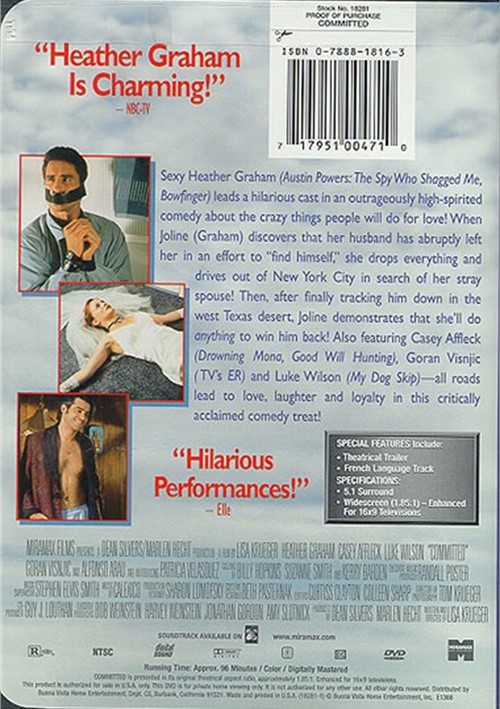

Unlike their characterization as self-seekers looking to “hook up,” Millennials genuinely desire long-term partnership. A 2014 Pew survey found that just 19% of Millennials say most people can be trusted, compared with 31% of Gen Xers, 37% of Silents and 40% of Boomers. Millennials’ difficulty in finding committed love-along with the pervasive view that “hookup culture” is the norm-may be related to the significantly lower levels of trust that young adults have compared to previous generations.
#Committed 2000 parental guidance how to
This later and less trend is at least in part caused by the uncertainty Millennials have about how to get to the loving, stable relationships suited for marriage. Although most Millennials desire marriage, they are marrying later, if at all. Only 8% of 18-25-year-olds surveyed report having ever casually dated. Unlike earlier generations, who learned from clearer relationship scripts, the lack of social norms about how to find a partner add to the sense of romantic bewilderment felt by Millennials. Relationships have been complicated by technology, including the pressures of social media and the illusion of constant contact.Īll of these shifts create a relationship landscape that is confusing-with competing interests and expectations, and the lack of a recognizable pattern for relationships or even life progression. Media has become more sexually aggressive, and pornography more widely available. The widespread availability of birth control, including long-acting contraceptives and the morning-after pill, has heightened expectations for casual sex-without-strings.

Moreover, 24% of Millennials experienced their parents’ divorce or were raised in single-parent homes. Marriage is no longer seen as an economic or social necessity, especially for women- who are more educated and more prevalent in the workforce than before. Much changed during the decades when Millennials were growing up. But “although previous generations also went through these relationship ups and downs, they did so for a much shorter time,” Twenge notes.

Parents and educators might misunderstand the severity with which romantic confusion affects Millennials. In her book Generation Me, author Jean Twenge reiterates that more than any other generation, Millennials “spend their 20s (and sometimes 30s) in pointless dating, uncertain relationships, and painful breakups.” Even worse, this “cycle of meeting someone, falling in love, and breaking up is a formula for anxiety and depression.” Millennials Need More Help Than Other Generations As one 27-year-old respondent in the study said: “there’s this idea that somehow you develop a relationship naturally. miserably to prepare young people for romantic love, probably the most important thing they will do in life," according to study author Richard Weissbourd. The survey, which included over 2,000 young adults, found that about 70% of Millennials described wishing they had received more information from their parents about finding and keeping love. A new Harvard study about the dating habits of young adults, ages 18-25, reveals that most Millennials are looking for guidance on how to form loving relationships.


 0 kommentar(er)
0 kommentar(er)
